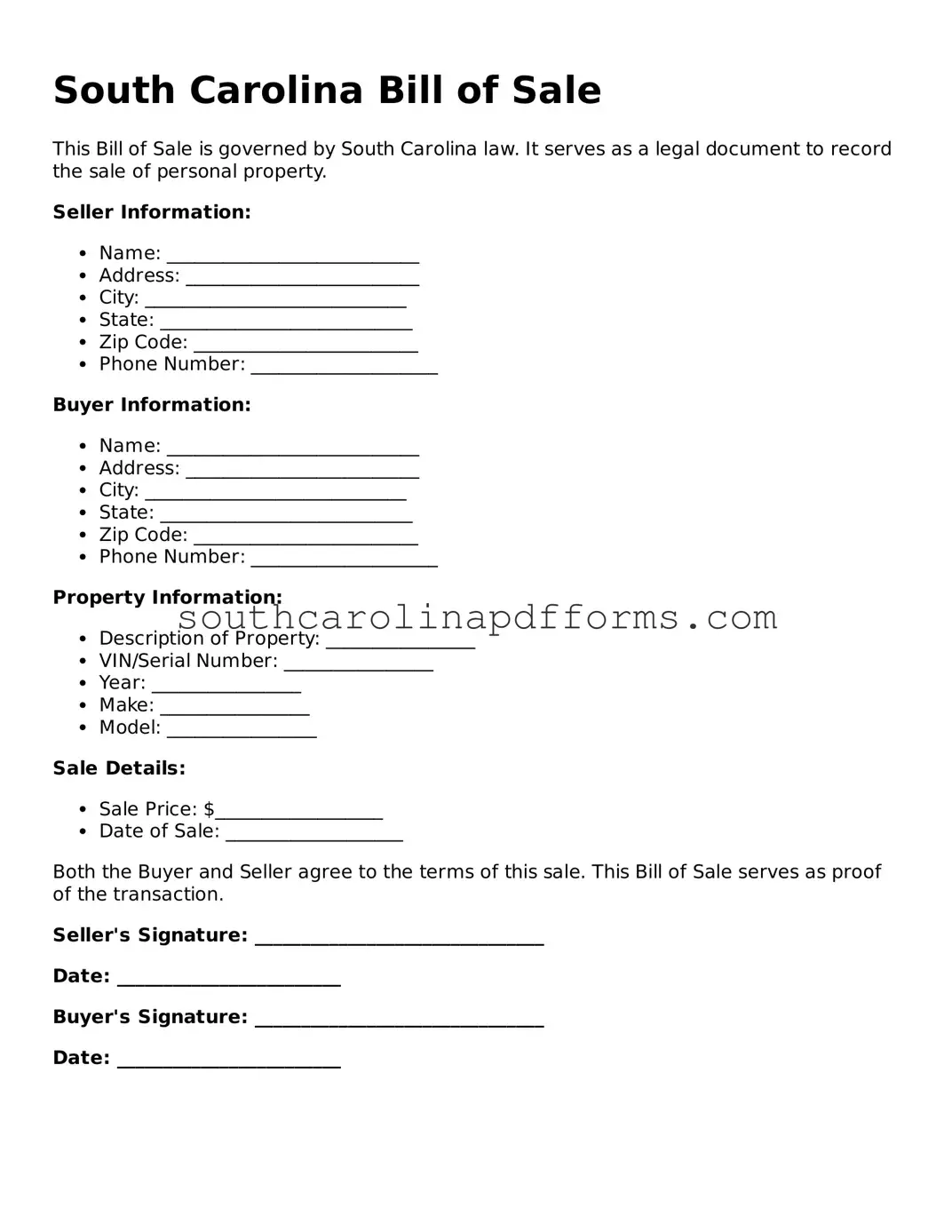Attorney-Approved South Carolina Bill of Sale Document
A South Carolina Bill of Sale form is a legal document that serves as proof of the transfer of ownership of personal property from one party to another. This form is essential for both buyers and sellers, providing a clear record of the transaction. Understanding its components and requirements can help ensure a smooth transfer process.
Access Bill of Sale Here
